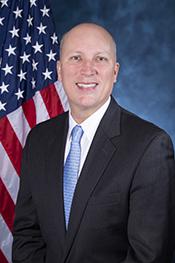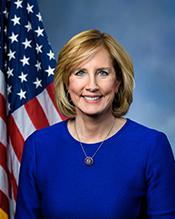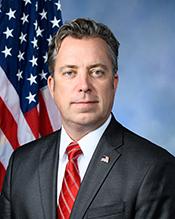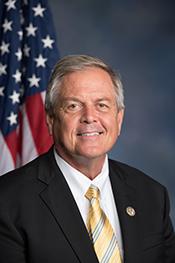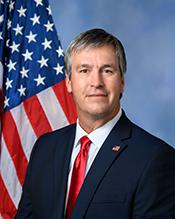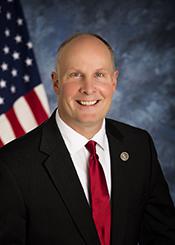0
0
0
No Taxpayer Funding for the World Health Organization Act
2/8/2025, 5:53 AM
Summary of Bill HR 401
Bill 119 HR 401, also known as the "To prohibit United States assessed and voluntary contributions to the World Health Organization" bill, aims to prevent the United States from providing any financial support to the World Health Organization (WHO). The bill specifically targets both assessed contributions, which are mandatory payments made by member countries based on their economic size, and voluntary contributions, which are additional donations made by countries to support specific WHO programs or initiatives.
The rationale behind this bill is not explicitly stated, but it is likely related to recent controversies surrounding the WHO's handling of the COVID-19 pandemic. Critics of the organization have raised concerns about its transparency, effectiveness, and alleged bias towards certain countries. By prohibiting US contributions to the WHO, supporters of the bill may be seeking to hold the organization accountable for its actions and push for reforms.
If passed, this bill would have significant implications for global health initiatives and the WHO's ability to carry out its mission. The United States is currently one of the largest contributors to the WHO, providing both assessed and voluntary funding that support a wide range of programs, research, and emergency response efforts. Without US financial support, the WHO may struggle to maintain its operations and fulfill its mandate to promote health and well-being worldwide. It is important to note that this bill is still in the early stages of the legislative process and may undergo changes before it is finalized. Supporters and opponents of the bill are likely to engage in debates and negotiations to shape its final form and determine its potential impact on US global health policy. As the bill progresses, it will be important to closely monitor developments and consider the potential consequences of cutting off US funding to the WHO.
The rationale behind this bill is not explicitly stated, but it is likely related to recent controversies surrounding the WHO's handling of the COVID-19 pandemic. Critics of the organization have raised concerns about its transparency, effectiveness, and alleged bias towards certain countries. By prohibiting US contributions to the WHO, supporters of the bill may be seeking to hold the organization accountable for its actions and push for reforms.
If passed, this bill would have significant implications for global health initiatives and the WHO's ability to carry out its mission. The United States is currently one of the largest contributors to the WHO, providing both assessed and voluntary funding that support a wide range of programs, research, and emergency response efforts. Without US financial support, the WHO may struggle to maintain its operations and fulfill its mandate to promote health and well-being worldwide. It is important to note that this bill is still in the early stages of the legislative process and may undergo changes before it is finalized. Supporters and opponents of the bill are likely to engage in debates and negotiations to shape its final form and determine its potential impact on US global health policy. As the bill progresses, it will be important to closely monitor developments and consider the potential consequences of cutting off US funding to the WHO.
Congressional Summary of HR 401
No Taxpayer Funding for the World Health Organization Act
This bill prohibits the United States from providing any assessed or voluntary contributions to the World Health Organization.
Read the Full Bill
Current Status of Bill HR 401
Bill HR 401 is currently in the status of Bill Introduced since January 14, 2025. Bill HR 401 was introduced during Congress 119 and was introduced to the House on January 14, 2025. Bill HR 401's most recent activity was Referred to the House Committee on Foreign Affairs. as of January 14, 2025
Bipartisan Support of Bill HR 401
Total Number of Sponsors
4Democrat Sponsors
0Republican Sponsors
4Unaffiliated Sponsors
0Total Number of Cosponsors
27Democrat Cosponsors
0Republican Cosponsors
27Unaffiliated Cosponsors
0Policy Area and Potential Impact of Bill HR 401
Primary Policy Focus
Alternate Title(s) of Bill HR 401
To prohibit United States assessed and voluntary contributions to the World Health Organization.
To prohibit United States assessed and voluntary contributions to the World Health Organization.
Comments

Lorelei Best
470
10 months ago
This bill is so dumb!
Sponsors and Cosponsors of HR 401
Latest Bills
Halting Ownership and Non-Ethical Stock Transactions (HONEST) Act
Bill S 1498December 12, 2025
Electric Supply Chain Act
Bill HR 3638December 12, 2025
National Defense Authorization Act for Fiscal Year 2026
Bill S 1071December 12, 2025
PERMIT Act
Bill HR 3898December 12, 2025
State Planning for Reliability and Affordability Act
Bill HR 3628December 12, 2025
Improving Interagency Coordination for Pipeline Reviews Act
Bill HR 3668December 12, 2025
Increasing Investor Opportunities Act
Bill HR 3383December 12, 2025
Holocaust Expropriated Art Recovery Act of 2025
Bill S 1884December 11, 2025
Enduring Justice for Victims of Trafficking Act
Bill S 2584December 11, 2025
SPEED Act
Bill HR 4776December 11, 2025
